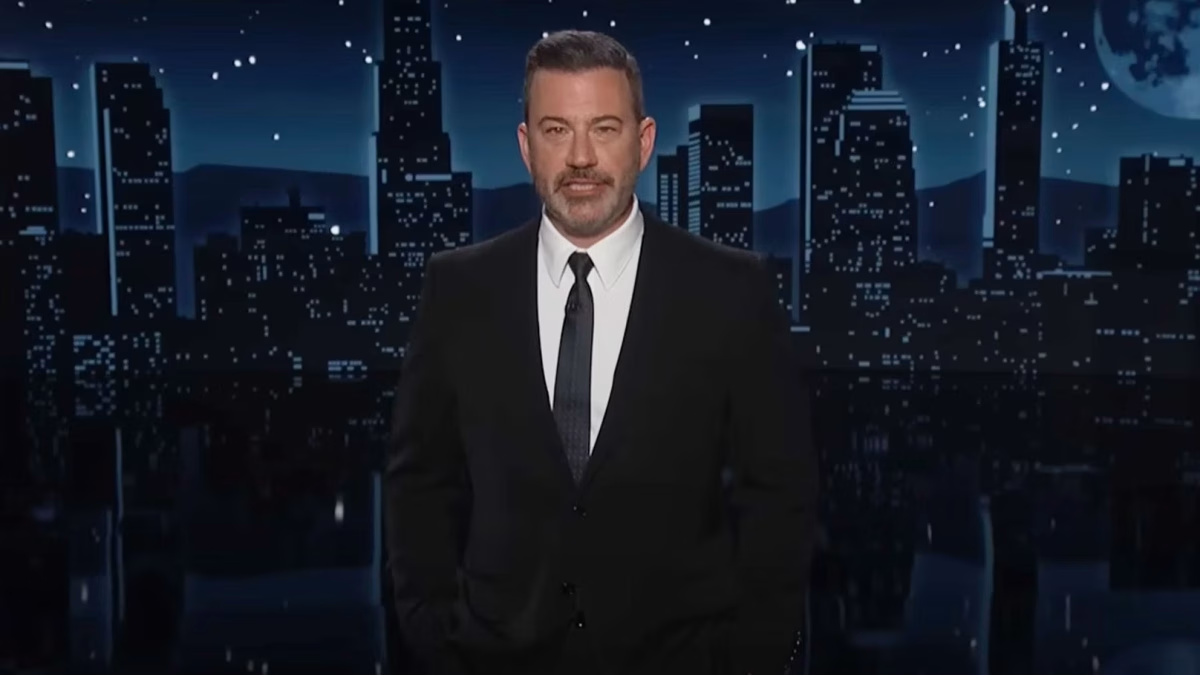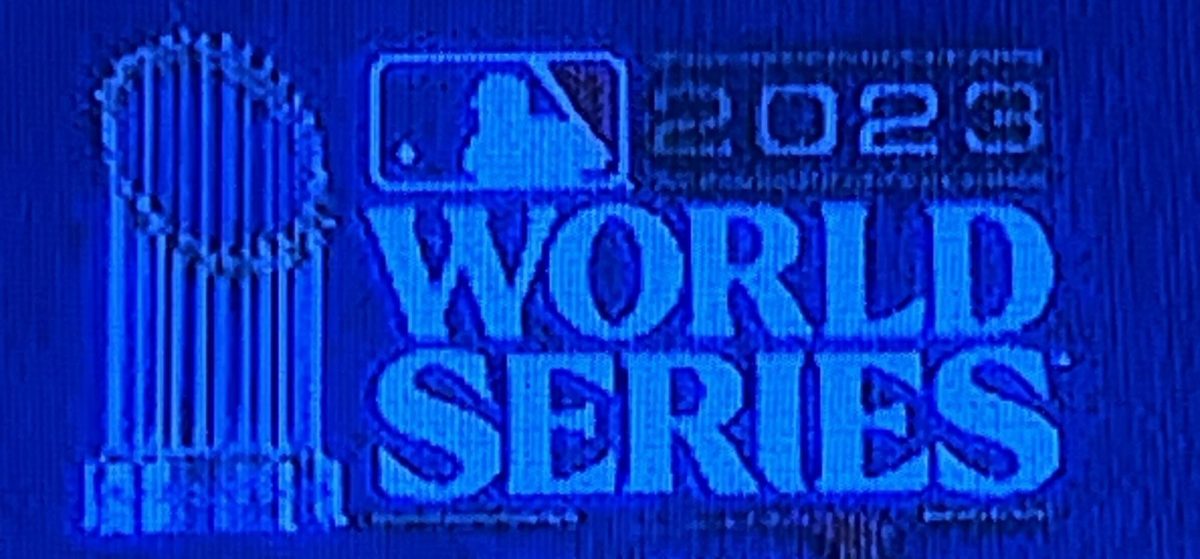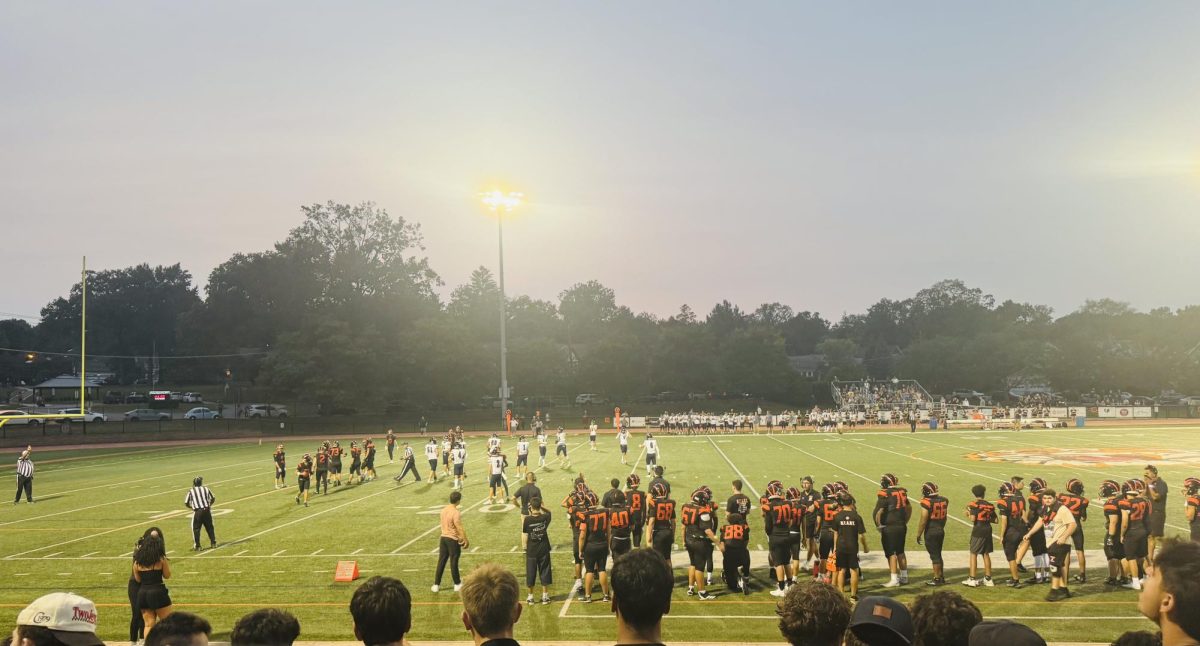It’s October, and once again, the biggest event of the Major League Baseball season has arrived: the World Series. In last year’s Fall Classic, we witnessed the Cinderella story of the Philadelphia Phillies as they made the playoffs for the first time since 2011, and made an impressive run to the World Series, only to be defeated in a back-and-forth six-game series by the Houston Astros, a perennial juggernaut that won 106 games. It was the classic matchup of an unstoppable force versus an immovable object. And in 2022, the immovable object won, with Houston taking its second World Series title (their first coming in the controversial 2017 season).
This past season was undoubtedly one of great changes and surprises for America’s national pastime. Games have gotten substantially shorter, new teams have risen from the ashes, and some of the richest teams (such as the Yankees, Red Sox, Padres, and Mets) in the sport failed to make the postseason. All these, on top of a chaotic postseason, have left two teams remaining.
New Life in the Lone Star State
When Houston Astros star José Altuve hit a go-ahead, 3-run home run in the 9th inning of Game 5 of the American League Championship Series, it seemed as if that was all but the nail in the coffin for the Texas Rangers. Texas had won the first two games of the series on the road in Houston, and had a significant advantage going back home for Games 3-5. However, Texas had a lowly 1-6 record at home against the Astros during the regular season (which was a major factor in Houston winning the AL West division title over Texas), an issue that reared its head during the ALCS. Texas was handily beaten in Games 3 and 4 before blowing a 9th inning lead in a tumultuous Game 5. Going back to Houston for Games 6-7, the Rangers faced an uphill climb. However, if there was one thing that this Rangers team encountered time and time again, it was adversity: they’d seen this movie before.
After going 68-94 in 2022, the Rangers surpassed all expectations and caught fire out of the gate, boasting one of the most potent offenses in the league. In spite of an injury to their big-time free agent acquisition, starting pitcher Jacob deGrom, the Rangers looked like serious contenders early in the season, with 7 players being named to the All-Star Game. However, things hit a snag, as the Rangers’ bullpen woes would culminate in the team losing eight straight games in late August. For a brief period of time, they were out of the playoff picture entirely. And despite getting back into the playoffs, they would lose a critical 4-game series in Seattle, allowing Houston to take the division. The Rangers knew they had everything to prove going into the playoffs, and prove themselves they did. After sweeping the Wild Card Series against the Tampa Bay Rays, Texas would go on to sweep the 101-win Baltimore Orioles in the Division Series before meeting up with their rivals to the southeast. Following a chaotic first 5 games of the ALCS (including a benches-clearing altercation in Game 5), the Rangers had no margin for error. So what did they do? Nothing much, other than win Games 6 and 7 by decisive margins and clinch their first AL pennant since 2011. The Rangers shelled Astros pitching for 20 runs in those two games alone, receiving contributions from up and down the lineup. Arguably the most significant player in those final two games was All-Star outfielder Adolis García, who was hit with a 99-mile-per-hour fastball by Astros reliever Bryan Abreu, leading to the aforementioned altercation in Game 5. And as Michael Jordan would say, it appeared that García took that personally, as the slugger drilled a grand slam in Game 6 to put the game out of reach, then hit two bombs in Game 7 to send his team to the World Series on his way to becoming ALCS MVP.
Having advanced to the World Series, the Rangers have the opportunity to, at long last, bring a World Series title to a franchise that has experienced nothing but heartbreak since the team moved to the Dallas/Fort Worth area in 1972. The team didn’t consistently reach the playoffs until the 1990s and didn’t reach the World Series until 2010, where they would promptly lose in 5 games to the San Francisco Giants. The following year, the Rangers had a 3-2 series lead and were a strike away from winning it all in both the 9th and 10 innings. Unfortunately for Texas, they would surrender two game-tying hits (a 2-run triple and RBI single in the 9th and 10th respectively) before giving up a walkoff solo home run to David Freese (the same player who tied the game in the 9th with a triple). The Rangers, having lost their momentum, would sputter and lose Game 7, making the 2011 World Series one of the most painful defeats for a team in baseball history. In the 2015 ALDS, they would allow José Bautista’s now legendary 3-run home run (and ensuing bat flip), which led to their elimination. The following year, they were eliminated by the same Toronto squad that defeated them in 2015, and since then it’s been a string of seasons that can be described as disappointing at best. Now, they have a chance to erase all those narratives. But first, they’ll have to get through a team with just as much to prove: the Arizona Diamondbacks.
Rising From the Ashes in Phoenix
Representing the National League is a team that had even lower expectations than their American League counterparts. The D-Backs are a mere two seasons removed from a woeful season in which they went 52-110. They’ve constantly been overlooked, even in years when they’ve been a playoff contender, which hasn’t been that often. Having missed out on the playoffs every year since 2017, the D-Backs were widely expected to have yet another pedestrian season in the 75-80 win range, as has been the case quite frequently throughout the team’s history. Even with decent regular season success, the story remained largely the same: the D-Backs put up a respectable 84-78 record (even holding 1st place in the NL West for a bit) and nonchalantly slipped (or slithered, more appropriately) into the final wild card spot. Yet, nobody really paid attention to them; they were a mere afterthought, one that would probably get swept in quick order. Sure, Arizona had talent, namely, Rookie of the Year frontrunner Corbin Carroll and Cy Young Award candidate Zac Gallen, but they weren’t a serious threat…right?
The D-Backs responded to their doubters by sweeping the Milwaukee Brewers in the Wild Card Series, which was unexpected to say the least. However, the D-Backs still had more left in the tank. Next came the NLDS against their hated rival in Los Angeles. The Dodgers have largely dominated the division for the past decade, and have won the division a whopping 10 times since Arizona last won it in 2011. Despite this, the D-Backs unleashed an absolute onslaught on the Dodgers, scoring 6 runs in the first inning of Game 1 against L.A. legend Clayton Kershaw, and capped off with 4 solo home runs in Game 3. Now in the NLCS, the D-Backs would be faced with the dominant offensive attack of the Phillies, on top of a deafening crowd at Citizens Bank Park. After a rough Games 1-2, Arizona rebounded and won a pair of nail-biters in Games 3 and 4 before dropping Game 5. Just like the Rangers, they would now be faced with a daunting task: win Games 6 and 7 on the road or go home. And just like everything else they’ve done this season, the D-Backs defied all odds and won both games in front of a shocked Philadelphia crowd. Led by brilliant pitching and timely base hits, the D-Backs punched their ticket to their second World Series appearance in franchise history.
While the D-Backs postseason history isn’t tremendously deep, they do have one fond memory to look back on: 2001. Only 3 years after their establishment, Arizona shocked the baseball world by winning one of the more memorable World Series in baseball history. From George W. Bush’s first pitch to Derek Jeter’s “Mr. November” home run, the series was full of unforgettable moments. Game 7 of that series, however, remains one of the best, with Luis Gonzalez hitting a walkoff bloop single against legendary Yankees closer Mariano Rivera and clinching Arizona’s first title in any major sport. Even then however, that series was more remembered for being “the one the Yankees lost” rather than giving the Diamondbacks credit. Just like the Rangers, the Diamondbacks have the opportunity to rewrite their own story; to cement themselves as a team to be preserved in baseball lore.
Fine…I’ll Make a Pick
There’s no doubt that this is an intriguing series, as next to nobody would have predicted either of these teams to make a deep postseason run. By making it this far, the Diamondbacks have proven that no task is beyond reach, and arguably their biggest advantage over the Rangers is their bullpen, which has been lights-out this postseason. Ketel Marte, Alek Thomas, and Gabriel Moreno have been great for the D-Backs, and don’t forget Corbin Carroll. Starting pitching has been up and down, although rookie Brandon Pfaadt has been a nice revelation for them. However, Texas, simply put, has the greater star power. The fact that the Rangers had 7 All-Stars and 4 All-Star starters this year speaks for itself. They also have the experience edge, with seasoned veterans throughout, some of whom have already been to or won the World Series. Starting pitchers Nathan Eovaldi and Jordan Montgomery have been outstanding; not to mention, they have future Hall of Famer Max Scherzer in their back pocket. Pitching has been a bit inconsistent, but in my humble opinion, the Rangers have too potent a lineup. The likes of Adolis García, Marcus Semien and Corey Seager, among other All-Stars, have the ability to change the game with a swing of the bat. Evan Carter, a rookie who was called up late in the season, has been unbelievable. With this is mind, I’m picking Texas in 6 games. Marcus Semien, who hasn’t done too much so far, seems to be due in my opinion, so I’ll pick him to be World Series MVP.
Whatever the outcome, be sure to tune in to watch Game 1, which is this Friday, October 27, on Fox at 8:00 PM ET.

















































































































































